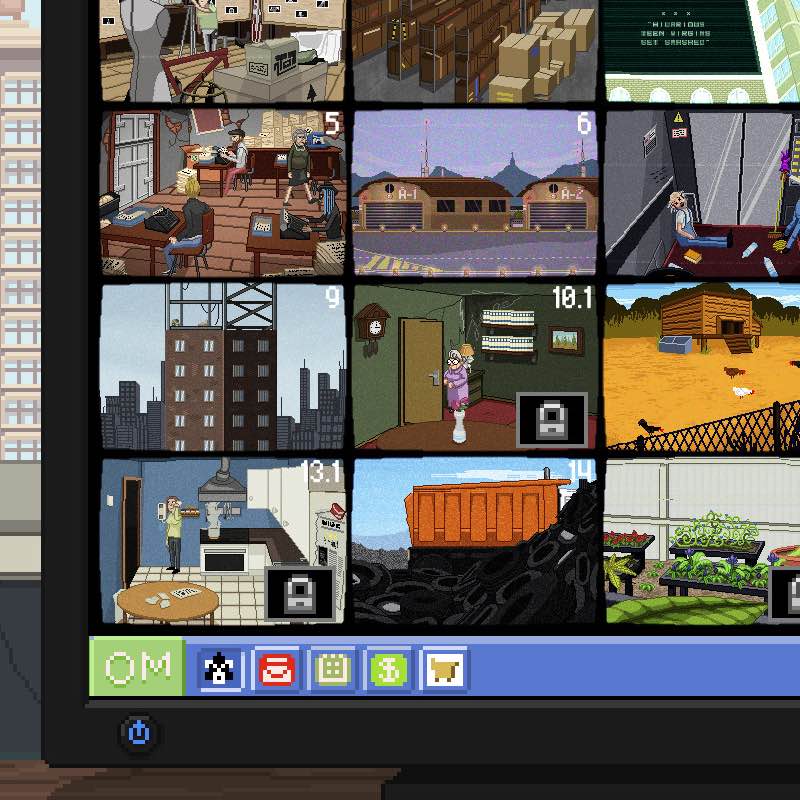
Privacy is very serious business. If you've ever met anybody in the Information Security field, you'll definitely agree with that. Maintaining your security and privacy protects you from identity thieves, shields you from the possible life-threatening harm that politically-minded doxing can put upon you, and also has substantially more benefits for your personal life. That said, you can't be serious 100% of the time. It's a good thing to unwind once in a while with a hobby.
Along with playing sports, heading to the beach, cooking, hanging out with their family, and working on neat art projects, a few of the talented staff here at RemoveMyPhone sometimes play a few computer games for entertainment at the end of the day. We've put together a small list of games we've played that either has a story or gameplay elements that involve privacy as a core component. Given the nature of politics as well as technical progress, this aspect of human life might be seen as an increasingly important story element in more games and media in the near future.
Our growing audience here is very mature and technically sophisticated, but it's very important to keep in mind that these are just fictional games that do not necessarily represent the current state of the world or have any intentional similarity with real world history or people. If you play any games and are interested in the impact of privacy on peoples' lives, these games might be up your alley. In no specific order, please check out the list and let us know if we missed any of your favorite games that feature some sort of privacy-related element.
Do Not Feed The Monkeys is a fascinatingly scary game and concept. This game puts you in the role of the newest member of "The Primate Observation Club", a clandestine group that observes other people through hacked surveillance cameras and compromised webcams where you can people watch with incredible superpowers. Within the game, the phrase "Do Not Feed The Monkeys" refers to the Prime Directive of the Club: members are not supposed to help, blackmail, or interact with the observed subjects in any way, despite the story compelling you in this direction. This creates some frightening moral dilemmas for you to consider and engage in. If you've ever wondered why Mark Zuckerberg puts a sticker over his laptop's webcam, this game might give you the answer.
The fittingly named Orwell puts you in the role of Big Brother. The gameplay puts you in the role of a Government Investigator who has access to the simulated social media and private accounts of a group of possible terrorism suspects. And you have to pry into their fictional YouTube and Email Accounts and cross reference the public information available to figure out what information is relevant to the investigation or not and find the guilty. This gives a new appreciation to some of the Snowden Revelations about the Government having access to more information than they've led the public to believe.
Papers, Please pulled off a gameplay miracle: it made checking paperwork an exciting interactive mechanic and won many game of the year awards in 2013 despite having simplistic graphics even for the time. Putting you in the role of a border guard of a fictional authoritarian state who is struggling for financial survival, you have to check the various entry visas, passports, and numerous bits of paperwork for errors and forgeries. Additionally, you have many tools at your disposal to examine the person and property trying to enter the country, as well as an interesting personal story. Well worth playing and emotionally impactful.
Beholder puts you in the role of a state-installed superintendent of an apartment building in a totalitarian country. The gameplay involves spying on tenants for crimes against the State, sneaking into your tenants' apartments when they're away to find contraband, and planting recording devices without getting caught. This presents a fascinating picture of a dystopian totalitarian state could function and makes you wonder who might be snooping on you. The sequel Beholder 2 puts you in the role of a career advancing employee in the Central Ministry, and the upcoming Beholder 3 reportedly puts you in more of a cloak and dagger sort of spying role.
Need to Know places you as an agent within an NSA-like Department of Liberty. You can use the incredible spying tools you have to enrich yourself, jail people, and accomplish any goals you set out to do. This style of story-rich gameplay shows how tempting the use of private digital access to peoples' private info can be.
Song of Farca puts you in the role of a detective. You can use your skills to hack into crime scenes and find out private information to interrogate suspects with and track criminals. Given the interconnected and digital nature of the modern world, this game feels a lot like an episode of Black Mirror.
Replica has a very interesting gameplay screen. It's essentially an interactive novel that you follow with a cell-phone as an interface. You keep up with the story by peering into the intimate private details on somebody else's phone. This game might go a long way towards illustrating why you want your phone number and other personal data to stay secret.
If you find these sorts of games fascinating, be sure to check out the Dystopian tag on Steam. It's interesting to see how many of these types of games have a backstory that have to do with a loss of privacy. There are many action or espionage or other computer games that feature some aspect of privacy as a more minor element. If you have any suggestions on great games that feature privacy, please send us the tip @RemoveMyPhone on Twitter.
We hope you enjoyed reading this guide and learned something new! Check out our Learning Center to learn more about online privacy and security or consider subscribing to our Online Privacy Service to remove your phone number, name, and address from Google, Bing, Yahoo, and DuckDuckGo search results and hundreds of data broker sites.
